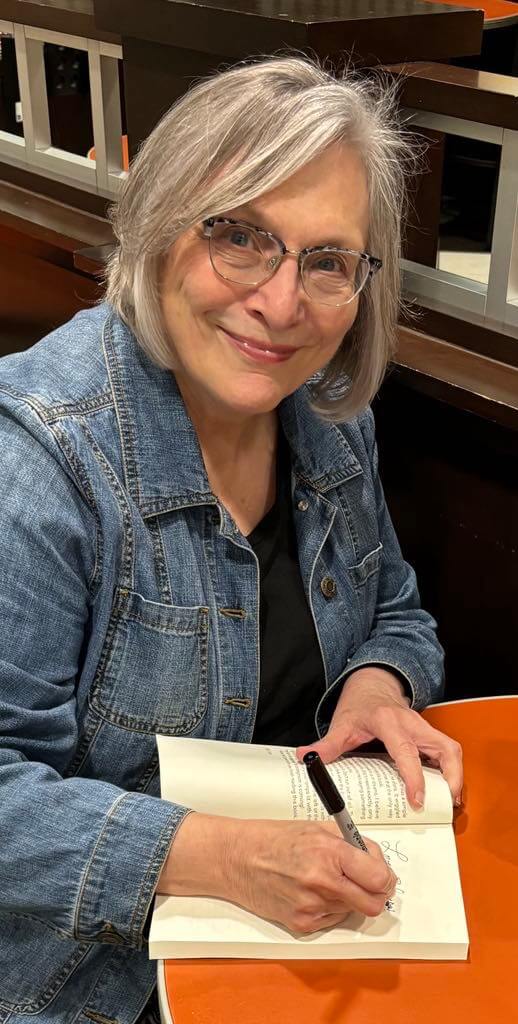Yoder: Crooked Folds, Perfect Love
By Kathy Yoder
Sometimes my son Ethan stays over at my place. He still ends up sleeping on the couch, even though I’ve told him he’s welcome to take the guest bedroom, his old room. But more often than not, he picks the couch. There’s something about it, worn as it is, that promises comfort and a kind of quiet companionship. It delivers both, along with a solid night’s sleep.

When Ethan opts for the couch, he’s meticulous about moving the pillows to the nearby chair. He knows I’m not fussy about much, but those pillows? They’re a bit of a thing for me. I like them to stay crisp and fresh-looking for as long as possible. Without me saying a word, he gets it. The pillows are sacred in their own small way, and he respects that. He’ll grab an old, faded one from the closet instead; his standby for these visits.
There’s a colorful afghan draped over the end of the couch, neatly folded. The couch itself is showing its age, frayed edges and all, and I know I should replace it. But I’m not quite ready to part with it or the memories it holds. The afghan does double duty: it hides the wear on the armrest and adds a splash of warmth to the room. Ethan knows he can unfold it and use it as a blanket, but when he’s done, I like it returned to its spot, folded just so.
The other day, he stayed over. As we chatted the next morning, I watched him tidy up. He tucked the old pillow back into the closet and turned his attention to the afghan. I’d never really paid attention to his folding process before. He laid it out on the couch, smoothing it with care, lining it up just right. He folded it lengthwise, then widthwise, before placing it back over the armrest exactly where it belongs. I was struck by the quiet intention in his movements, the time he took.
After he left, I walked over to adjust the afghan, almost out of habit. It wasn’t as pristine as when I fold it myself. His edges were a little uneven, the lines a touch crooked. But as I stood there, I stopped myself. I couldn’t refold it. Ethan had folded this afghan with loving hands, not for perfection, but for me. The longer I looked, the more beautiful it became. Not because it was flawless, but because it carried his care, his love, in every imperfect crease.
Love isn’t perfect, though, is it? It doesn’t arrive in a tidy box, checked off against a list of ideals. It’s messy, uneven, scratched up by life. Jesus understood that kind of love. He didn’t come for the polished, the ones with curated lives and matching throw pillows. He came for the broken, the outcasts, the lepers, the untouchables, the ones everyone else avoided. The ones who knew they were messy, and so did the world.
He came for the prostitutes who were used, judged, and discarded by society all at once. For the lonely, the ones without family to bring laughter or meaning to their days. And he didn’t stop there. He welcomed them into his family. He came for the cheaters, the thieves, the addicted—slaves to vices seen and unseen. For the women at the well, ostracized and yearning to belong. For the sad, the forgotten, the overlooked, the never-knowns.
He came for the lame. Not just the physically broken, but those too afraid to step into new paths, too stuck to hope for change. Like the man at the pool of Bethesda, they’d list all the reasons healing wasn’t possible, missing the Healer standing right there, offering them a new way forward.
New lives mean change, and change is daunting. The unknown can paralyze us. But when it’s from the Lord, it’s also transformational. Just ask the Apostle Paul. One moment on the road to Damascus flipped his entire world, redirecting him toward the greatest Transformer of all.
I’d be leaving out half the story if I said love is never perfect. It is perfect when it comes from the One who is. Jesus loves us with a perfect love that doesn’t care about our mismatched lives or frayed edges. He meets us where we are, on our worn-out couches, and loves us too much to let us stay there. He guides us down winding, transformational roads that lead, eventually, to home.
In 2025, we’re surrounded by voices telling us to curate everything: our homes, our feeds, our lives. But maybe we need to step off the couch, let go of perfectly folded afghans, and let Jesus’ perfect love cast out fear (1 John 4:18). Let the Lord of lords and King of kings wrap us in a love that doesn’t demand perfection, just presence.
Kathy Yoder is a devotional writer. She may be reached at kathyyoder4@gmail.com and Kathyyoder.com.





